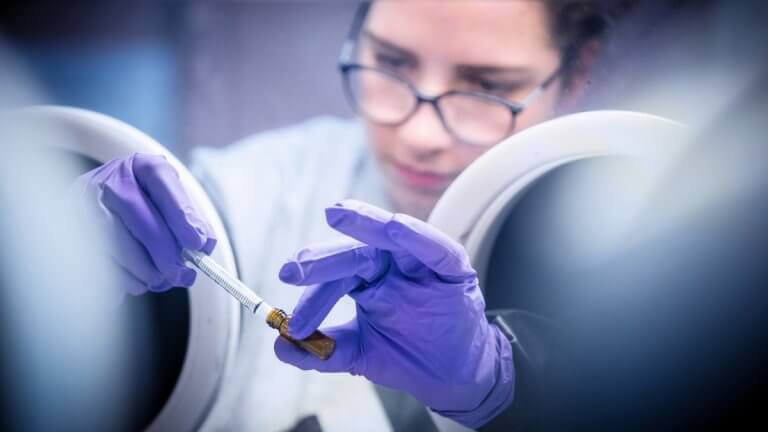
It’s often said that we eat, live and breathe the things we’re passionate about. If this is true, we must all have an innate passion for environmentalism and sustainability.
Pollution, plastic and environmental collapse are issues now so prominent that we’re constantly reminded of our unsustainable lifestyles. We can barely go a day without new research about the dangers of air quality being released, another video of marine life affected by plastics going viral or another horror story about extreme weather conditions or natural disasters hitting front page media.
Even if we try and shut our eyes to the worsening environment around us, the problems are now so large they’ve begun to affect us from the inside out.
According to a recent study by Environmental Pollution, every time we eat a meal we consume over 100 microplastic fibres present in dust and the animals we eat. On top of this, only five percent of the air left on earth is now deemed safe to breathe, according to the State of Global Air.
Without attesting to a far-out conspiracy theory, it’s becoming almost impossible to deny the unsustainability of human activity.
With 38.2 billion tonnes of CO2 entering the environment each year, 1,800 fields the size of football pitches worth of trees being destroyed every hour, and one garbage truck load of plastic entering the ocean every minute, it’s painfully obvious that we’re hurtling towards the point of no return.

Source: Shutterstock
Waking up to these facts can evoke a mass feeling of helplessness and a lack of personal responsibility. What difference does recycling one bottle make in the face of state-sized plastic islands floating in the sea?
It’s only natural to feel disillusioned by the scale of these environmental problems – but this is where technology’s potential for change really shines.
Technology offers a glimmer of hope among the decaying earth we have created, offering not only a new industrial revolution, but perhaps one that can repair the mistakes of that which came before.
Rather than depending on the individual, technology can collect, analyse and offer solutions across cities, societies and the world. Take IBM’s Green Horizons initiative, for example.
Using artificial intelligence, IBM is rolling out a programme across China, and eventually the globe, that can predict pollution levels up to 10 days in advance. This data can then be used to mitigate pollution hot-spots in cities, redirect traffic away from weather that may blow pollution into residential areas, reduce industrial activity and issue warning to citizens.
Technology can help the world be more sustainable in the future, but it also has the potential to reduce the unsustainable activities that have occurred thus far. Projects such as The Ocean Cleanup are committed to reversing these damaging trends, implementing innovative technologies to earn our planet extra time on the destruction clock.
Something as simple as a floating ‘skirt’, propelled slightly faster than the current by wind and waves, has the potential to collect up to 50 percent of the Great Pacific Garbage Patch in just five years. The Ocean Cleanup will launch this project in September, proving it’s never too late to seek powerful solutions.
Research and innovative thinking are central to these unique technological solutions that have the power to create a more sustainable world. By studying technology’s relationship to sustainability at university, more forward-thinking minds can contribute to an environmentally-conscious future.
École Polytechnique is committed to producing these globally responsible graduates, offering progressive degrees that consider the industrial, economic and social contexts needed to make an impact beyond students’ studies.
The Master’s in Ecotechnologies for Sustainability and Environment Management offers postgraduate students real-world technical expertise in environmental issues, including soil and water pollution diagnostic, treatment and valorisation processes, while also investigating the economic and social challenges within these issues.
Through research projects, coursework, classes and technical training, students learn how to lead and manage sustainable technological projects to create a brighter future across the globe. The hands-on emphasis combined with state-of-the-art facilities and teaching from industry experts prepares students to inspire sustainable developments across the global economy.

Source: École Polytechnique
Alternatively, for students who find their passions lie in green energy, the Master’s in Energy Environment: Science Technology and Management could be the key to driving the world towards a greener future.
This course specialises in technical expertise surrounding environmental issues and renewable energy sources, cultivating a comprehensive understanding of the economic, social and geopolitical challenges to their implementation.
During this programme, students examine a range of viable energy alternatives before putting their classroom work to practice in research projects and coursework assignments. This prepares Master’s students to be innovative influencers in the field beyond graduation, creating a more sustainable future for the global population.
By committing to these Master’s programmes at École Polytechnique, you’ll gain the knowledge and industry experience needed to have a positive impact on the environment beyond your studies, helping humanity flourish amidst these pressing sustainability issues.
Follow École Polytechnique on Facebook, Twitter, YouTube, Instagram and LinkedIn







